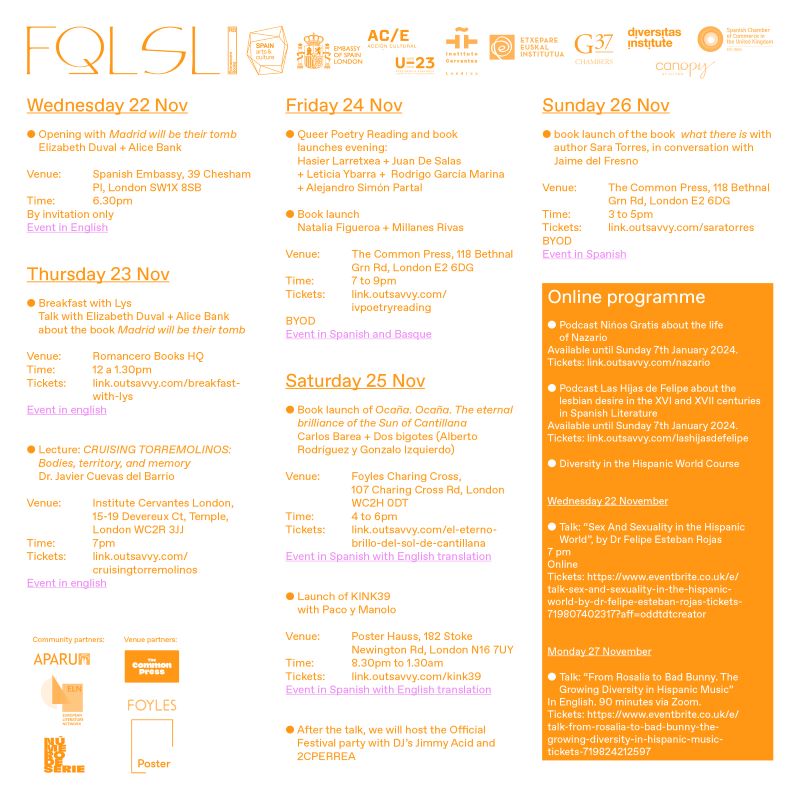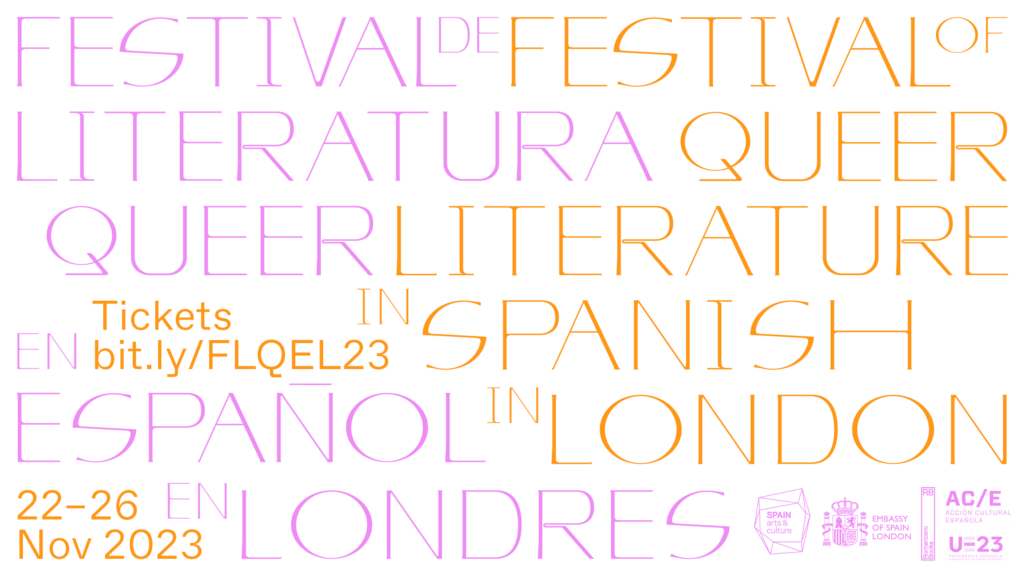The third edition of the Festival of Queer Literature in Spanish in London is here
The third edition of the Festival of Queer Literature in Spanish in London, a project that was born from
the London-based online bookstore Romancero Books CIC, will take place between Wednesday 22
and Sunday 26 November.
In this edition the festival will be a hybrid of online and face-to-face events, happening in different venues across the city; from the Spanish embassy, to the Cervantes Institute in London, Foyles Bookshop in Charing Cross, Poster Hauss in Dalston or The Common Press bookshop in Brick Lane.
The Festival of Queer Literature in Spanish in London – FQLSL is a meeting point for readers, writers, critics, and people interested in LGTBIQ+ culture
For this third edition of the FQLSL we are going to welcome some of the most outstanding names of
queer literature and LGTBIQ+ activism from Spain and Latin America, such as Elizabeth Duval, Art
History Dr. Javier Cuevas del Barrio, poet Sara Torres, fashion and queer culture photographers Paco
y Manolo, Leticia Ybarra, Alejandro Simón Partal, Natalia Figueroa, Juan de Salas, Las Hijas de
Felipe and talks about Nazario, Ocaña and María de Zayas among others.
The programme consists of 7 live events, 2 podcast episodes and 2 online talks.

The festival’s objectives are:
Promote Spanish LGBTQI+ studies in the United Kingdom
Share the most recent queer literature written by Spanish and Latin American writers in the
United Kingdom
Remember the roots of queer writing and support the reclamation of writers who were subject
to censorship and suppression
Launch some of the latest LGBTQI+ books published in Spain during the past year
Support new voices in queer poetry and queer theatre
Build connections between British readers and queer literature written in Spanish and Catalan
by promoting their English-language translations
Build relations between Spanish writers & editors and their British colleagues for potential
future literature translations
Romancero Books CIC is an online bookshop of Spanish and Latin American literature based in
London. Our catalogue covers themes such as Lorca, female writers from Generación del 27, writers
in exile and diaspora and new LGBTQI+ voices as well a large programme of cultural events called
Romancero Talks.




